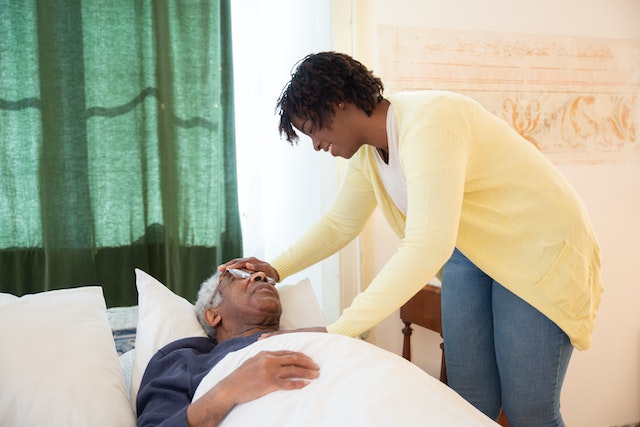
Caring for aging loved ones can be a rewarding and fulfilling experience, but it can also come with unexpected challenges. Our loved ones’ care requirements may increase in complexity as they become older, necessitating more of our time and energy. This article will explore some of the unexpected challenges of caring for aging loved ones and offer some tips on navigating these challenges.
Difficulties of Caring for Aging Loved Ones
Balancing Caregiving and Personal Life
One of the most significant challenges of caring for an aging loved one is balancing caregiving responsibilities with personal life. Caring for a loved one can be a full-time job, and it’s easy to get burned out if one neglects their own needs. Caregivers must ensure they care for themselves by getting enough rest, eating healthily, and maintaining social connections.
Emotional and Mental Strain
Caring for an aging loved one might take a significant emotional and mental toll on caregivers. Seeing someone you love deteriorate physically or mentally can be upsetting, and it’s normal to have feelings of worry and anxiety as a result. Caregivers must seek emotional support and counseling to manage their emotions and maintain their mental health.
Financial Burden
It’s simple for caregivers to feel financially overwhelmed since caring for an elderly family member may be costly. Caregivers must consider the expense of medical treatment, drugs, and assistive equipment. They may even need to change their work schedule to provide adequate care. Planning is crucial, and if necessary, financial aid should be sought.
Family Dynamics
Family relations may become strained while caring for an elderly loved one, especially if there is disagreement concerning the care plan. Caregivers must be transparent with their family members and, if required, seek the assistance of a trained mediator.
Balancing Safety and Independence
As our loved ones age, their care needs may require them to give up some of their independence. Caregivers must find a balance between ensuring their loved one’s safety and allowing them to maintain their independence as well. Caregivers need to handle any problems with understanding and compassion to strike the right balance.
Criteria for Admission to Assisted Living Facilities
Assisted living facilities are residential communities that provide supportive services to seniors who need help with activities of daily living. Navigating the qualifications for assisted living can certainly be a challenge for older adults and their loved ones. It can be a complex process that involves understanding the physical and financial needs of the individual, as well as researching and visiting potential facilities to determine if they meet those criteria.
Elderly Facility Services
Elderly facilities, also known as senior living communities or retirement homes, can be a good option for older adults. They provide a range of benefits for seniors, particularly those who are no longer able to live independently or who want to enjoy their retirement years in a community setting. The following facilities are provided at an elderly home.
- Personal Care Assistance: This can involve helping with daily activities such as bathing, dressing, grooming, and toileting.
- Meal Preparation: Preparing and cooking meals, taking into account any dietary restrictions or preferences.
- Transportation: Providing transportation to medical appointments, grocery stores, and other errands.
- Home Care Services: Home care services provide assistance with household chores like laundry, cleaning, and organizing.
- Medication Management: Making sure that medications are taken as prescribed, and monitoring any potential side effects.
- Companionship: Spending time with aging loved ones to provide socialization, emotional support, and entertainment.
- Home Health Care: Home health care services involve providing skilled nursing care, physical therapy, occupational therapy, and other medical care in the home.
Benefits of Caring for Aging Loved Ones
Stronger Family Bonds
Caring for an aging loved one can bring family members closer together, provide an opportunity to spend quality time together, and strengthen family bonds.
Improved Quality of Life
By providing care to an aging loved one, caregivers can help improve their loved one’s quality of life. This may include a wide range of care, from helping with chores and errands to setting doctor’s appointments and offering emotional support.
Personal Growth and Development
Caring for an elderly loved one might provide the opportunity for personal development. Caregivers may learn new things and hone their communication skills. They can also develop more patience and gain empathy toward others.
Sense of Fulfillment
Helping an elderly relative or friend might give you a feeling of accomplishment and satisfaction. A person’s life may take on a whole new significance when they realize they have made a difference in the lives of their loved ones.
Conclusion
Caring for aging loved ones can be challenging, but it can also be a fulfilling experience with the right support and resources. Caregivers must prioritize self-care, seek emotional support, and plan to manage the financial burden. By understanding the unexpected challenges of caregiving, caregivers can prepare themselves and provide the best possible care for their loved ones.


